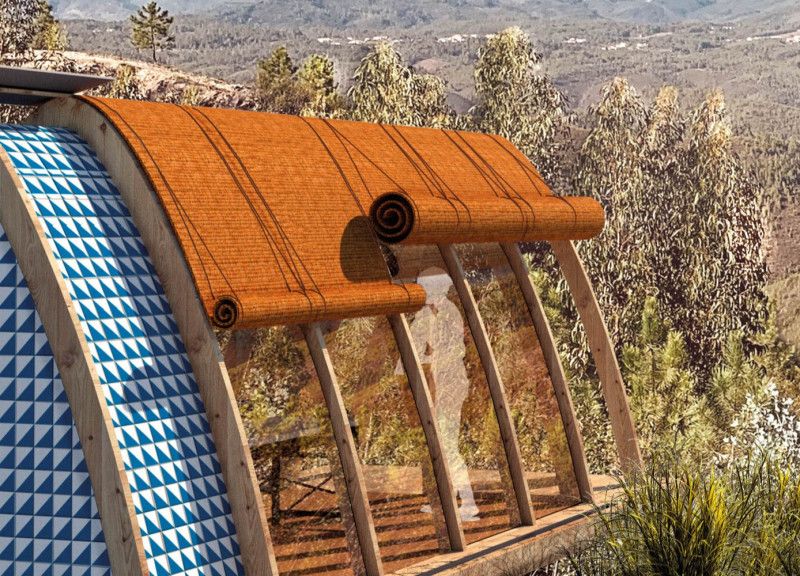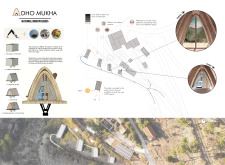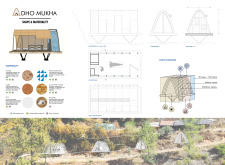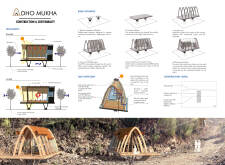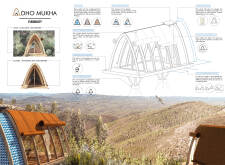5 key facts about this project
ADHO MUKHA is located in Vale de Moses, Portugal, and focuses on promoting wellness and mindfulness. The cabins are designed to blend with their surroundings, emphasizing a connection to nature. The overall design concept is rooted in simplicity and adaptability, allowing these structures to meet both functional needs and aesthetic values.
Design Intent
At the heart of ADHO MUKHA is the desire to create a harmonious relationship between the cabins and the natural environment. The cabins start with a basic cube form, which then evolves to fulfill practical and visual requirements. The design encourages mindfulness practices and personal reflection, fostering a deeper connection between users and their surroundings.
Spatial Organization
The layout is carefully organized to promote community and engagement among users. Walkways and outdoor platforms allow for yoga and meditation, creating spaces for movement and interaction. This arrangement supports both individual reflection and social connection, striking a balance between personal privacy and communal experience.
Material Selection
The project uses a thoughtful selection of materials that highlight local culture and sustainability. Wicker serves as an effective insulation material while providing a tactile quality. Portuguese tiles contribute to the regional identity, and cork adds thermal comfort to the interiors. Scots pine wood is utilized to create parabolic structural elements, enhancing the overall natural aesthetic of the cabins.
Sustainability Features
Each cabin includes features that support self-sufficiency, such as solar panels and independent water systems. ETFE is used for the roofing, chosen for its durability and ability to withstand weather. The Piloedre foundation system allows for easy placement on various terrains without harming the landscape.
The design provides private outdoor areas for occupants, encouraging them to step outside and engage with nature. These spaces offer opportunities for relaxation and introspection, enhancing the overall experience of retreat and mindfulness in the serene environment of Vale de Moses.


